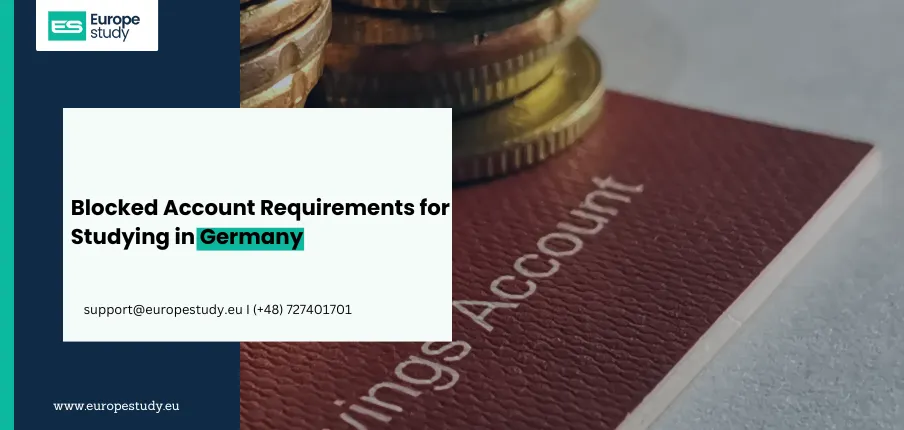
Blocked Account Requirements for Studying in Germany
If you're planning to study in Germany as an international student, one of the key financial requirements you’ll encounter is the blocked account. This is a crucial part of the student visa application process and serves as proof that you have sufficient funds to support yourself while living and studying in Germany.
This article breaks down everything you need to know about the blocked account, including the required amount for 2025, how it works, and what alternatives (if any) are accepted.
What is a Blocked Account?
A blocked account (Sperrkonto) is a special type of bank account required by German immigration authorities. It acts as financial proof that you have enough money to cover your living expenses in Germany for at least one year.
The account is "blocked" in the sense that you cannot withdraw the full amount at once. Instead, you're allowed to withdraw a fixed monthly sum (currently €934 as of 2024, more on that below) to manage your living costs throughout the year.
How Much Money is Required in the Blocked Account?
As of January 1, 2023, the German Federal Foreign Office increased the annual amount that international students must deposit to:
- €11,208 per year
- Which equals €934 per month
This is the minimum amount required to demonstrate that you can financially sustain yourself. It covers basic expenses like accommodation, food, health insurance, transportation, and other personal costs.
Note: This amount is reviewed annually and may change. Students applying for a visa for the 2025 intake should confirm the current figure on the official website of the German Federal Foreign Office or the German embassy in their country.
Why is a Blocked Account Required?
The blocked account serves several purposes:
- Financial Security: It ensures you won’t become a financial burden on the state.
- Visa Requirement: It’s a mandatory part of the German student visa process (unless you're on a fully funded scholarship).
- Structured Budgeting: The monthly withdrawal limit encourages financial discipline.
How to Open a Blocked Account
You can open a blocked account with several German banks and financial service providers. Popular options include:
- Deutsche Bank
- Expatrio
- Fintiba
- Coracle
- RemitX (India-based partner for blocked accounts)
The process typically includes:
- Submitting an online application
- Uploading your passport and admission letter
- Transferring the required amount (€11,208 or higher depending on the provider's fee and buffer)
- Receiving a confirmation certificate to submit with your visa application
Are There Any Alternatives?
Yes, but they are limited and must be approved by the German embassy. Alternatives include:
- A formal obligation letter (Verpflichtungserklärung) from a sponsor residing in Germany
- A scholarship from a recognized organization or institution that covers all living expenses
However, these are often subject to stricter scrutiny and not commonly accepted in all cases. Most Indian and non-EU students opt for a blocked account.
What If You Stay for More Than a Year?
If your course duration exceeds one year, you’ll need to renew your residence permit annually. To do so, you must show proof of sufficient funds for each extension — usually by topping up your blocked account again or showing a source of income such as part-time work or scholarships.
Can I Use the Blocked Account Funds for Tuition?
No. The blocked account amount is intended only for living expenses. If your university charges tuition fees (some private or specialized programs do), you must arrange separate funds for that.
Final Thoughts
Opening a blocked account is one of the first steps toward securing your student visa for Germany. As of now, you need to show at least €11,208 for a year. Given that the visa rules are tightening in 2025, especially with the end of the remonstration procedure, it's more important than ever to ensure your financial documents are accurate, complete, and compliant with the latest requirements.
Always consult the official website of the German Federal Foreign Office or your local German consulate or embassy to get the most current and official information before proceeding with your visa application.





